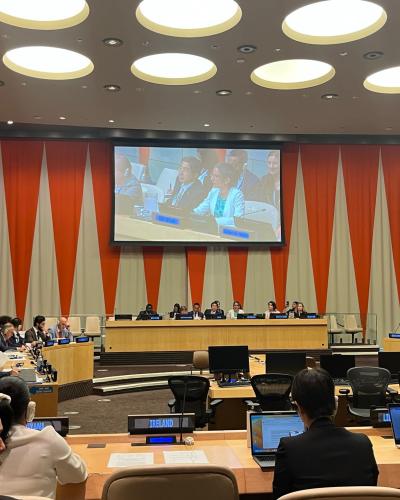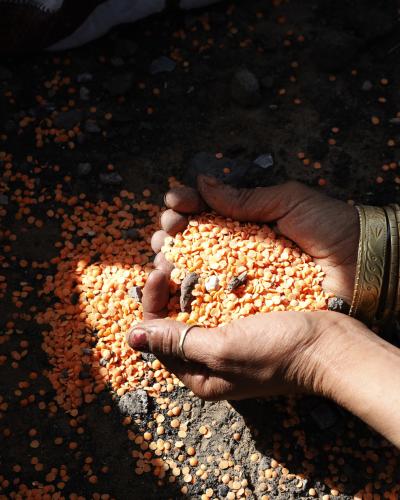The protection of civilians is one of the main responsibilities of UN peacekeeping missions. These missions usually operate in difficult contexts, facing a variety of security challenges. These include, for example, unstable conflict dynamics, serious violations of international law, restricted freedom of movement, disinformation or limited resources. On 28 July, the Security Council discussed with the commanders of the peacekeeping missions in South Sudan (UNMISS), Lebanon (UNIFIL) and the Democratic Republic of Congo (MONUSCO) how the missions can address these challenges and improve the protection of civilians on site. "Unfortunately, civilians still represent the vast majority of victims in armed conflicts and their protection is therefore more needed than ever," emphasised Swiss UN Ambassador Pascale Baeriswyl at the Security Council. The protection of civilians is also a priority for Swiss membership in the Security Council.
Switzerland emphasised in the Council that UN peacekeeping missions should be less reactive with regard to the protection of civilians and should instead focus on the prevention of violations against civilians. Moreover, it made clear that this protection must also be guaranteed in transitional phases, such as in the case of the upcoming withdrawal of the UN peacekeeping mission in Mali (MINUSMA). "The withdrawal of MINUSMA must under no circumstances lead to a deterioration of the situation of civilians: The government of Mali must immediately take over the tasks that the mission previously performed in this area," Baeriswyl said in New York.
The Swiss Armed Forces are active in peacekeeping missions, as are numerous other countries. Around 280 Swiss troops are deployed. Among other things, the Swiss Armed Forces are supporting the United Nations Mine Action Service (UNMAS) in West Africa in humanitarian demining. In Kosovo, members of the armed forces are contributing to a safe and stable environment and the freedom of movement of the population. Swiss military observers are deployed in the Kashmir region between India and Pakistan. They monitor conflict-affected regions and exchange information with the authorities and the population in order to obtain relevant information for assessing the security situation. Switzerland also has a contingent of up to 20 police officers who serve in UN missions. In 2022, it deployed 16 of them. Their task is to support and train local police personnel in post-conflict transition periods. By doing so, Switzerland is contributing to peacekeeping, the respect of international law, and thus the protection of the civilian population.



